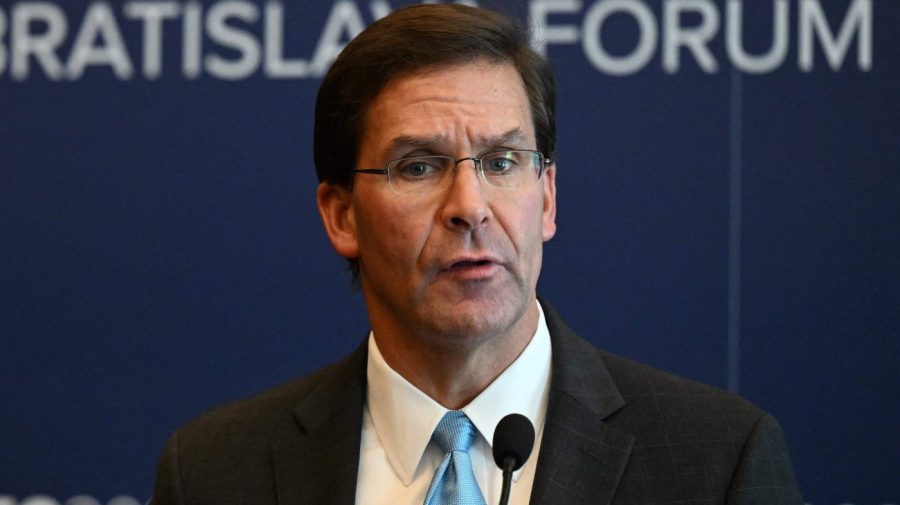Former Defense Secretary Mark Esper recently shared insights regarding Israel’s potential military response to Iran’s missile strikes, which were spurred by the ongoing conflict between Israel and Iran-backed groups. Esper characterized any Israeli counteraction as a “significant strike,” likely focused on broader military and strategic objectives beyond mere retaliation. He indicated that if Israel aims for regime change, they may target key Iranian leaders and military structures, particularly the Ayatollah Khomeini and the Islamic Revolutionary Guard Corps (IRGC). Esper emphasized that the effectiveness of such actions hinges on dismantling Iran’s command and control capabilities to limit the regime’s ability to coordinate their defense.
Additionally, Esper addressed the risks associated with attacking Iran’s nuclear facilities, highlighting the tactical challenges such an operation would involve. He pointed out that striking these critical sites would necessitate deep incursions into Iranian territory, significantly raising the stakes with potential losses of Israeli personnel, especially pilots. He cautioned that such military endeavors must be weighed carefully, considering how Iranian civilian casualties might provoke a rallying effect among the populace, especially given the regime’s current vulnerabilities. This perspective outlines a complicated calculus for Israeli military planners, balancing the urgency of action against the broader implications of engagement.
In the backdrop of these discussions, President Biden has expressed that he opposes direct Israeli strikes on Iranian oil or nuclear installations, a position at odds with some Republican defense hawks who assert that these sites should be legitimate targets in light of Iran’s aggressive missile activity against Israel. This division in perspective highlights the complexity of international military strategies at play, particularly as tensions have escalated in the region with missile exchanges and ongoing military operations in Gaza. As Israel’s conflict with Hamas approaches a year, responses to Iranian aggression will significantly shape the regional landscape.
Esper also noted that Israel might consider targeting additional military capabilities in their retaliation, including ballistic and drone production facilities, which are crucial for Iran’s military infrastructure. He identified potential economic targets within Iran’s oil production and refining sectors, which could disrupt the financing of military operations and weaken the Iranian economy. This underscores the multifaceted approach Israel may take in retaliation, aimed at debilitating not just military but also economic capabilities of Iran.
When asked about the probability of a wider conflict stemming from Israeli retaliation, Esper expressed confidence in Israel’s readiness, suggesting that the nation has been preparing for such scenarios for some time. He highlighted the necessity for U.S. support in any retaliatory operation, acknowledging that while Israel can manage a direct response, the involvement of allies, particularly in logistics and munitions supply, would be critical for operational success. As tensions escalate, the international dimension of any conflict with Iran would likely necessitate cooperative strategies among allied nations to maintain stability.
Lastly, Esper’s commentary raises critical questions regarding the regional ramifications of any significant military action by Israel against Iran. With noted shifts in power dynamics—such as the weakened positions of Hamas and Hezbollah—there’s speculation about Iran’s ability to respond effectively. Khamenei described Iran’s missile barrage as justifiable, yet the underlying implications suggest limited conventional capabilities to retaliate against a robust Israeli response. The evolving conflict serves not only as a military confrontation but also as a pivotal moment influencing regional stability, alliances, and long-term strategic objectives. As the situation develops, the stakes for both Israel and Iran remain extraordinarily high, indicating a new chapter in their enduring rivalry.

